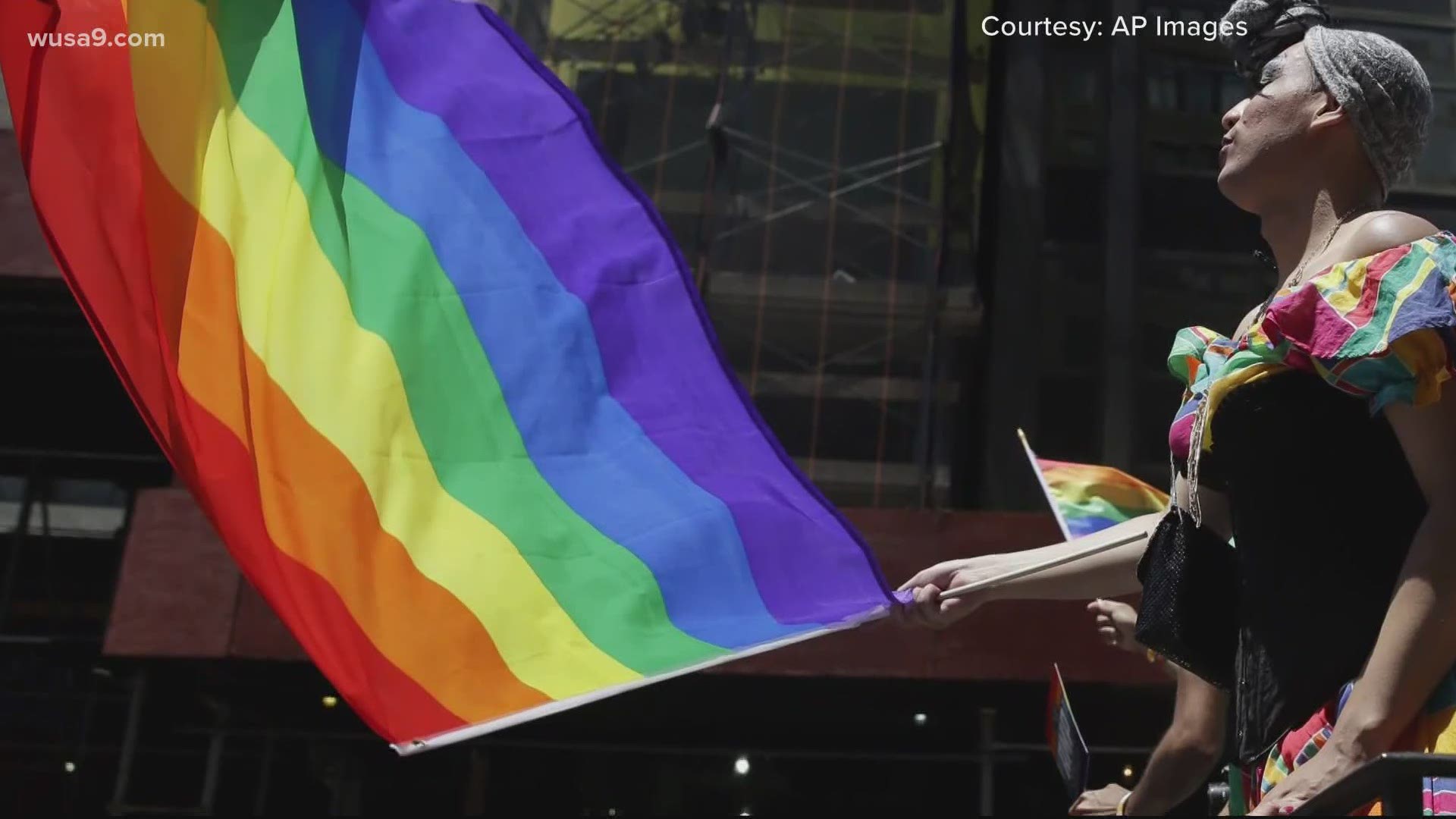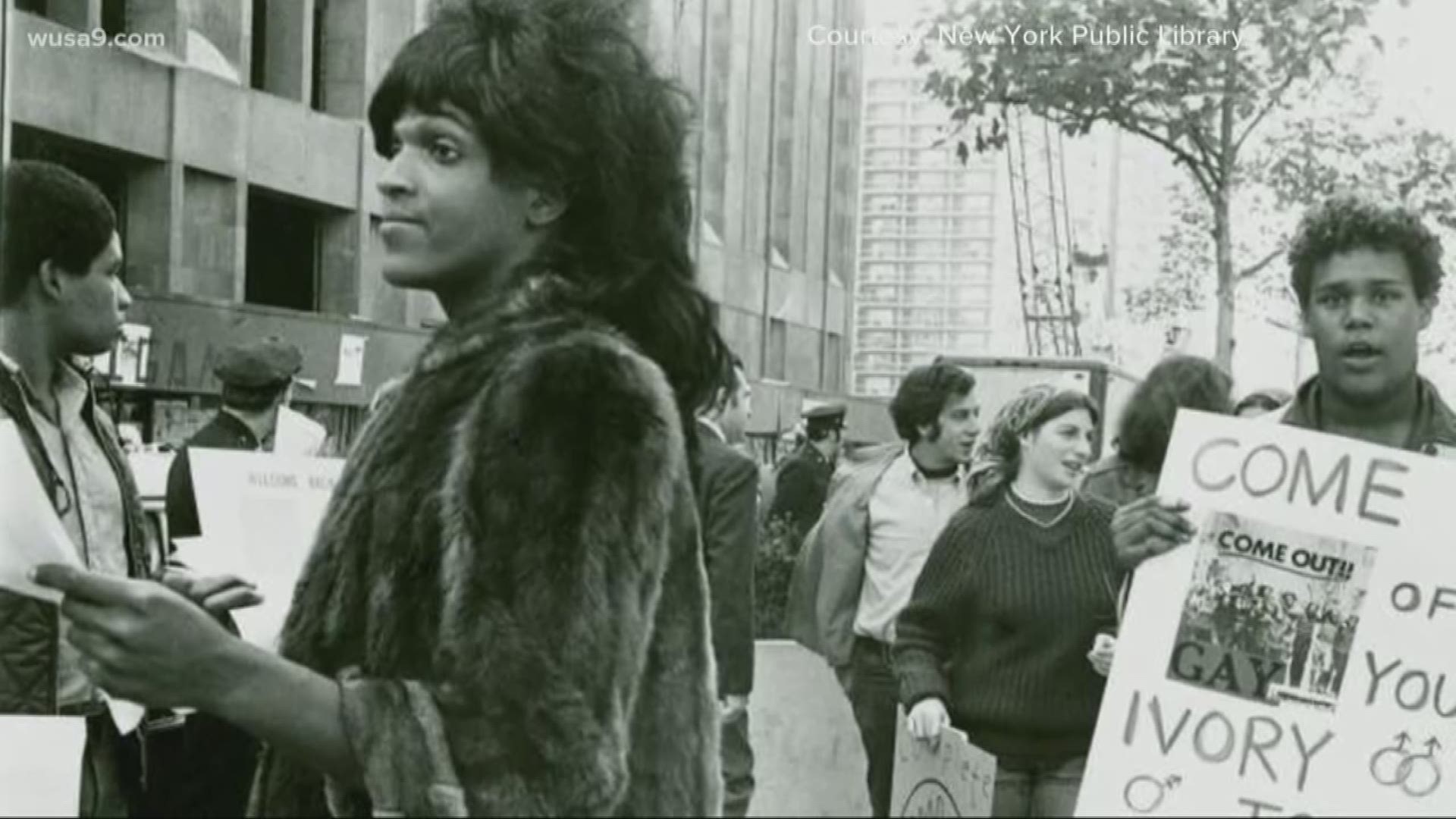WASHINGTON — Capital Pride was postponed because of the coronavirus pandemic, but some said current racial equality protests echo the reason pride started.
The first pride was a riot.
Lesbian, gay, bisexual, and transgender (LGBTQ) people demanded to be treated fairly and fought for equality 51 years ago outside of the Stonewall Inn in New York.
People of color were at the forefront of the Stonewall protest, and black LGBTQ people want to make sure their voices are heard in the current fight for Black lives.
"This has been the best pride month I've seen in many years," said Derrick Petit, president of Gay Professional Men of Color (GPMC). "This pride month, because of the connection to Black Lives Matter, has basically went back to its roots. Pride was not a parade. Pride was started as an uprising to get their rights."
Cey Cey Green added, "Not only was pride a riot, pride was a riot and those were some Black folks, too."
The protests following the death of George Floyd have included signs stating "All Black Lives Matter" and "Black Trans Lives Matter."
"It has to encompass the LGBTQ community. When we go into the community, before anyone knows about our sexuality, before anyone knows anything about us, they see a Black person," Petit explained.
"There are tons and tons of times that we have this conversation about Black Lives Matter and whether it is implied, or directly stated, members of the LGBTQ community are not a part of that conversation," Green told WUSA9.
RELATED: He went viral on Facebook. Now this DC native is changing lives across the country #ForTheCulture
Green said some Black LGBTQ people have faced challenges balancing race, gender identity, and sexual orientation and finding their place within the communities they belong to.
"For Black queer people, there is this sort of quest for a home space," Green said. "You go into the queer community as a Black person, and you experience all of this racism. It's like, 'Oh, man. I feel like I don't belong here.' Then, you try to go back to the Black community where you felt like you belonged. You get there and you’re like, 'Oh, man. There is all of this homophobia here.'"
"When you have to fight against that sense of racism, and then you have to fight against this sense of discrimination in the black (community), it puts you to the point where you don’t know what to do," Petit explained.
Petit and Green said it is important to have the sometimes difficult conversations with people who may have different views and walks of life to encourage more unity in the fight for equality.


